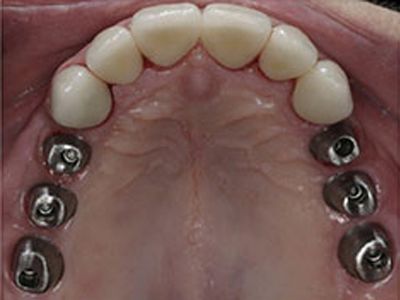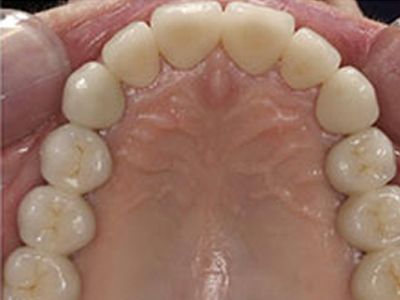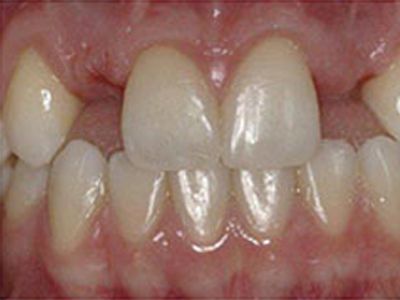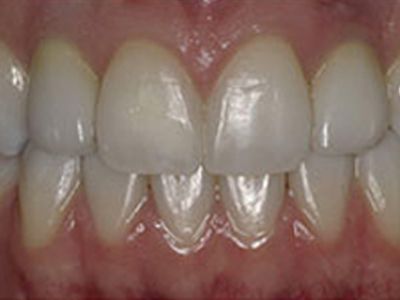Implant Supported Crowns
An implant-supported crown is a dental restoration that replaces a missing tooth by inserting an artificial titanium root into the jawbone and attaching an artificial tooth to it. It is cemented in place and cannot easily be taken out.
Not everyone is a candidate for a dental implant. For a successful implant to take hold, a candidate must have proper bone density and a strong immune system. In all cases, dental implants require strict oral hygiene.
Implants are so well designed that they mimic the look and feel of natural teeth. Implants are usually made of a synthetic yet biocompatible material like metal or ceramic.
Surgery is necessary to prepare the area for an implant and place the implant in the mouth. Following the procedure, a period of time is required for the implant to take hold and for bone tissue to build up and anchor the device. In some cases, metal posts are inserted into the implant during a follow-up procedure to connect the tooth.
Because implants require surgery, patients are administered anesthesia and, if necessary, antibiotics to stave off infection following the procedure.
Like any restoration, implants require diligent oral hygiene and proper care to ensure they last a long time.




Frequently Asked Questions About Implants
Click on the questions below to learn more about dental implants!
Crowns are usually made of four types of materials:
1. Porcelain
2. Gold Alloy (commonly gold, platinum, palladium)
3. Porcelain fused to an inner core of gold alloy
4. Zirconia metal oxide * Implants are made of titanium
- It builds back your smile and helps you to speak and chew properly by restoring the natural size, shape and color of your teeth. It helps maintain tooth, bite and jaw alignment by preventing remaining teeth from shifting out of position.
- There is no need to drill down existing teeth in order to replace the missing tooth as occurs with conventional tooth supported bridges.
- If an implant screw loosens or any repair of the restoration becomes necessary, the restoration may be destroyed during the removal procedure if the cement seal cannot be easily broken.
- Cementing restorations onto implants leads to challenges in removal of cement below gumline, possibly leading to tissue inflammation in the
area. - There is a minimal risk of the implant not adhering to the jawbone and thus requiring removal and replacement.
- Other possible complications may be such things as food entrapment, tissue irritation and challenges in matching adjacent tooth aesthetics.
- Chipped porcelain, worn metal or loose implant screws may require maintenance procedures, repair or replacement.
The alternative to having an implant supported crown is:
- Replace the missing tooth with an conventional tooth supported bridge.
- Replace the missing tooth with a removable partial denture.
- Leave the space as is.
- Excessive or uneven bite forces may cause porcelain chipping, metal wear, implant screw loosening, or even gum and bone loss around the
implant. - Severe bite issues such as habitual tooth grinding may cause premature failure of the dental prosthesis.
- Porcelain on the crown may have a good color match with adjacent natural teeth when the crown is placed but less of a match as your natural teeth age.
- Food may become lodged around the implant supported crown; gum recession or minor bone loss around the top of the implant over time may make food impaction unavoidable, even with the most ideal crown contour.
- Gum recession may also lead to unsightly metallic implant margins becoming visible.
- A crown may chip or break if used for abnormal activities (e.g. biting fishing line, sewing thread or finger nails, opening bottles).
Call today or send us a message online!


